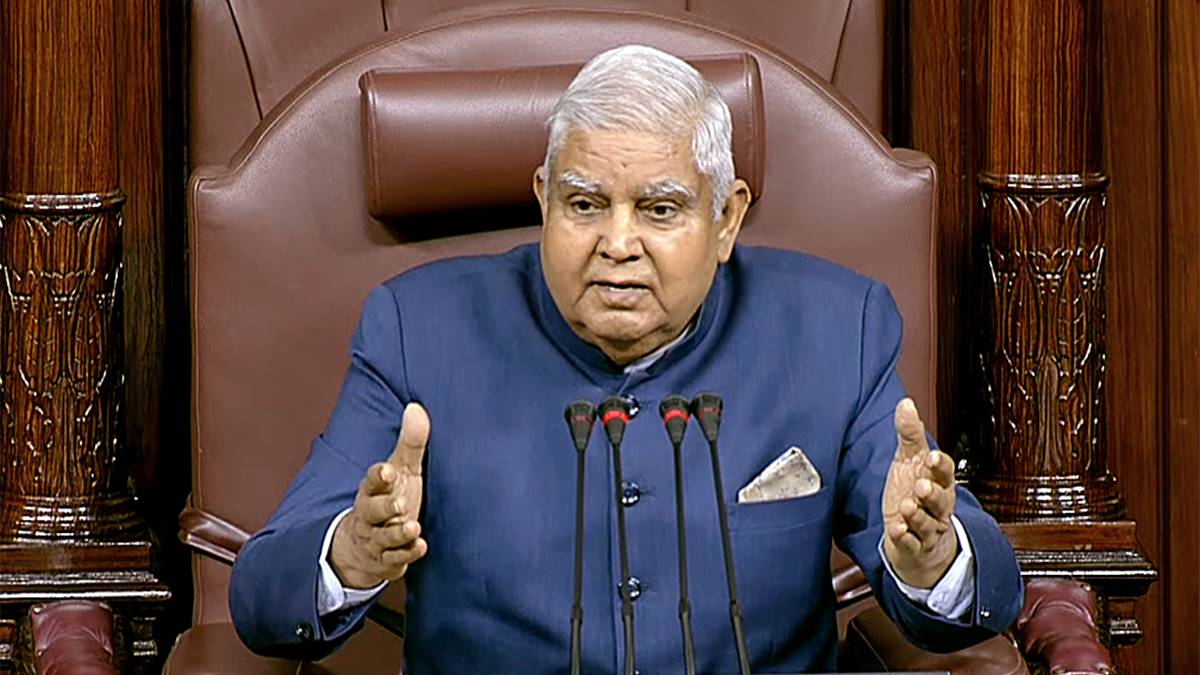
During a recent Rajya Sabha session, India’s Vice President, who is also the Chairman of the Upper House of Parliament, gave a harsh warning to Derek O’Brien, a major opposition leader. The heated exchange took place during a debate about a disputed government proposal. Derek O’Brien, known for his impassioned remarks, argued vehemently, but his language and outright questioning of the Chair’s impartiality breached the line of parliamentary etiquette.
The Rajya Sabha, often referred to as the Council of States, plays a crucial role in India’s bicameral parliamentary system. It acts as a check on the powers of the directly elected Lok Sabha (House of the People) and ensures that state interests are well-represented in the legislative process. The Vice President serves as the ex-officio Chairman of Rajya Sabha and presides over its sessions. The position holds significant authority in maintaining decorum and upholding parliamentary rules during debates.
The Vice President’s involvement was intended to defend the institution’s dignity and maintain order. He reminded Derek O’Brien and all members of Parliament of the Upper House’s anticipated decorum. “You’re challenging the Chair!” he said emphatically, sending a clear message that such behavior would not be permitted.
This incident raises serious concerns regarding the role of the opposition in a democratic democracy. While vibrant democracies foster vigorous debate, they also necessitate that the institution and its presiding officer be respected. The caution serves as a reminder that the opposition’s duty to hold the administration accountable must be undertaken within the framework of parliamentary norms and conventions.
The incident has since sparked intense discussions both inside and outside the Parliament. On one hand, some political observers view this as an instance of protecting the sanctity of parliamentary proceedings and respecting the authority vested in the Chair. They argue that maintaining decorum and adhering to parliamentary rules is essential for the smooth functioning of the legislature.
On the other hand, O’Brien’s supporters argue that parliamentary debates can often become impassioned, especially when issues of great significance are at stake. They assert that robust discussions and even disagreements are inherent to a healthy democracy, and cautioning MPs in such situations may stifle dissent and limit free speech.
Furthermore, the episode highlights the critical role of an impartial and unbiased Chair in the Parliament. The function of the presiding officer is critical in moderating arguments, guaranteeing impartiality, and protecting the interests of all members, regardless of political affiliation. Any challenge to the Chair’s authority undermines the democratic process and the integrity of legislative proceedings.
As India’s political landscape reflects on this confrontation, it is critical to find methods to engage in constructive debates that promote discourse and progress without jeopardizing the legislative system’s integrity. Respecting the Chair’s authority and following House rules is critical to preserving the legislative process’s purity.
Moving forward, the tragedy should be viewed as a chance to strengthen the democratic ideals of respect, tolerance, and cooperation in India. All stakeholders must consider the importance of maintaining parliamentary decorum while carrying out their obligations as elected representatives.
The recent conflict in the Rajya Sabha between Derek O’Brien and the Vice President is a significant event in India’s parliamentary history. It emphasizes the significance of striking a balance in a dynamic democracy between vigorous opposition and maintaining decorum. Maintaining parliamentary conventions facilitates the smooth operation of the legislative process and serves as a model for future generations of legislators.
As India strives to maintain its democratic values, members of Parliament must engage in constructive and courteous debates. The incident reminds everyone that the dignity of the institution must be maintained while performing their duties as representatives of the people.
Finally, the Vice President’s admonition should serve as a stimulus for establishing a more courteous and cooperative legislative culture. By doing so, India would be able to reinforce its democratic underpinnings and remain a bright example of a healthy and inclusive democracy in the global arena.











